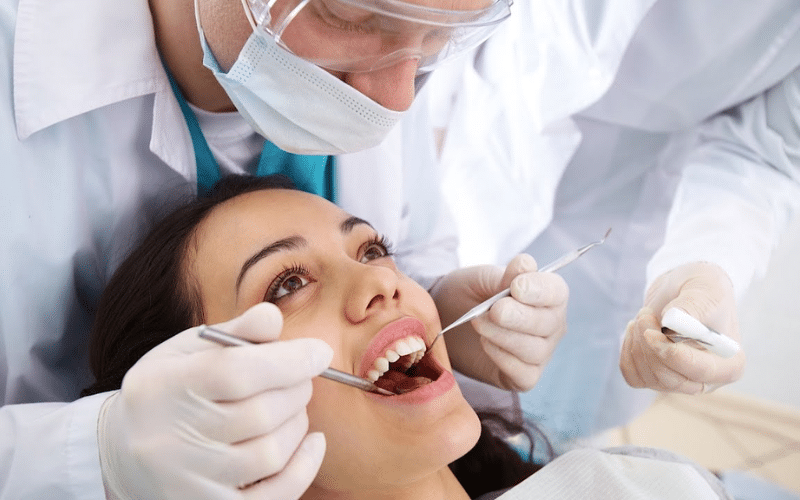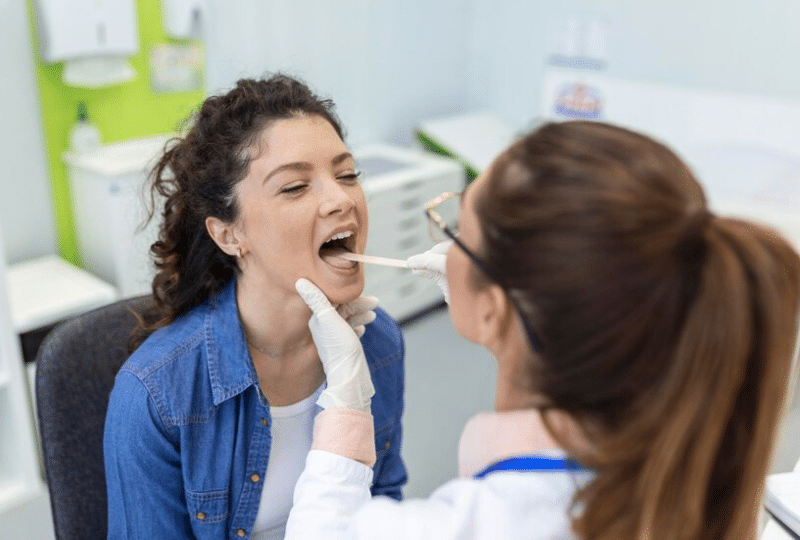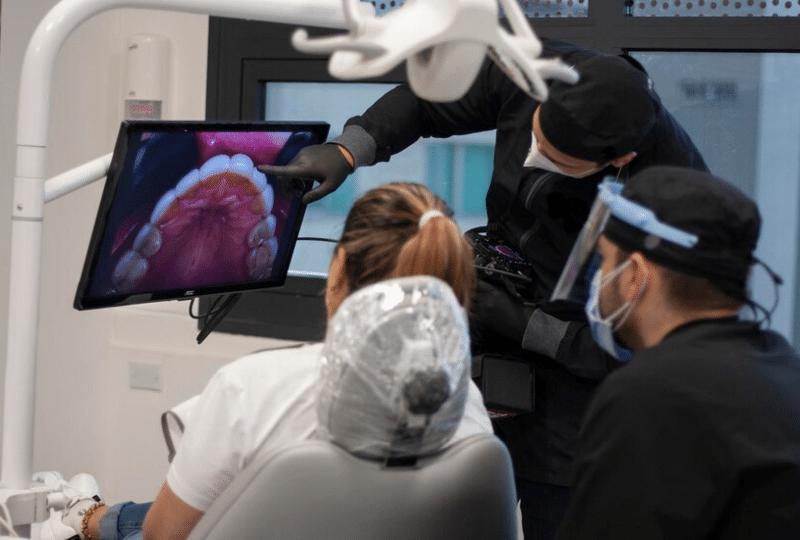Oral cancer can develop without noticeable symptoms, which is why regular oral cancer screenings are critical to detect any abnormalities early. By the time some signs are visible, the cancer may have advanced, making treatment more difficult.
Early detection, however, can significantly improve outcomes. But how often should you undergo oral cancer screenings to ensure your health is protected? Let’s dive into this important question through today’s blog.
Oral Cancer and Its Risk Factors
Before determining how often you should have an oral cancer screening, it’s essential to understand the disease and who is at risk.
Oral cancer refers to cancers of the mouth, tongue, throat, and the tissues inside the mouth. It can appear as a growth, sore, or discoloration, and in its early stages, it may not cause pain. The most common areas affected include the tongue, the floor of the mouth, lips, gums, and the hard and soft palates.
Risk Factors of Oral Cancer
While anyone can develop oral cancer, certain factors increase the risk:
- Tobacco Use: Smoking or chewing tobacco significantly raises the risk of oral cancer.
- Alcohol Consumption: Heavy drinking, especially when combined with smoking, increases the chances of developing oral cancer.
- Age: People over the age of 50 are at a higher risk.
- HPV (Human Papillomavirus): Certain strains of HPV have been linked to oral cancers, particularly in the throat.
- Family History: Genetics may play a role in increasing the risk of oral cancer.
- Sun Exposure: Prolonged exposure to the sun, especially to the lips, can lead to lip cancer.
Importance of Regular Oral Cancer Screenings
You might wonder why regular screenings are essential if oral cancer doesn’t seem to have immediate symptoms. The truth is oral cancer often remains undetected until it has reached an advanced stage, which is why routine screenings can save lives.
Early Detection Saves Lives
When caught early, the survival rate for oral cancer is much higher, with treatment options that are less invasive and more effective. Routine screenings allow dentists to spot potential issues before they progress, offering patients the opportunity for early intervention.
Simple, Painless, and Quick
Oral cancer screenings are non-invasive, typically taking just a few minutes during a routine dental check-up. Our dentist will check for any unusual growths, sores, or other signs of cancer in your mouth, throat, and lips.
It’s a simple process with no pain involved, making it easy to incorporate into your regular visits.
How Often Should You Get an Oral Cancer Screening?
The frequency of oral cancer screenings depends on several factors, including your age, risk factors, and the dentist’s recommendations. Here’s a breakdown of the general guidelines:
For Adults With Average Risk (No Tobacco or Alcohol Use)
- Every 1-2 Years: For those without major risk factors (such as no history of tobacco or excessive alcohol use), oral cancer screenings should be a part of your routine dental check-ups.
Most people should have a screening at least once a year, though some dentists may recommend once every two years, depending on your overall health.
For High-Risk Individuals (Tobacco and Alcohol Users, HPV Infections, or Family History)
- Annually or More Frequently: If you are at higher risk due to smoking, heavy alcohol use, or a history of HPV, a dentist may suggest more frequent screenings. In these cases, annual screenings are a must, and in some high-risk cases, screenings may even be recommended every 6 months.
For Seniors (Over the Age of 50)
- Annually: Oral cancer risk increases with age, especially after 50. Even if you don’t use tobacco or alcohol, it’s important to be screened for oral cancer annually, as the likelihood of developing the condition rises significantly in this age group.
For Patients with a History of Oral Cancer
- Regular Monitoring: If you’ve previously been diagnosed with oral cancer, you’ll need frequent screenings, often every three to six months, depending on the doctor’s recommendation. It is crucial to monitor for any recurrence of cancer.
What Happens During an Oral Cancer Screening?
If you’re wondering what to expect, the process is simple and typically included in your regular dental exam.
The Essential Steps
- Visual Examination: Our dentist will look for any visible signs of abnormal tissue, such as lesions, growths, or discoloration in your mouth, gums, tongue, and throat.
- Palpation: They will gently feel the inside of your mouth, neck, and jaw to check for any unusual lumps or bumps that might indicate the presence of cancer.
- Tissue Analysis: If anything suspicious is found, further testing may be recommended, such as a biopsy, to analyze the tissue.
How To Enhance The Prevention Of Oral Cancer?
In addition to regular screenings, there are steps you can take to reduce your risk of developing oral cancer:
1. Avoid Tobacco
Tobacco use is the leading cause of oral cancer. Whether you smoke, chew, or dip, quitting tobacco is the single most important step you can take for your oral health.
2. Limit Alcohol Consumption
If you drink alcohol, limit your intake. Excessive drinking combined with tobacco use increases your risk substantially.
3. Protect Your Lips from The Sun
Use lip balm with SPF protection to guard against sun damage, which can lead to lip cancer.
4. Maintain Good Oral Hygiene
Brush and floss regularly to keep your gums and mouth healthy, and see the dentist for routine cleanings.
5. Get Vaccinated Against HPV
If you are eligible, the HPV vaccine can reduce your risk of developing HPV-related oral cancers, particularly for those under 26.
Don’t Wait, Get Screened Now!
Oral cancer may not always show immediate symptoms, but detecting it early increases the chances of successful treatment. Regular screenings are a proactive way to protect your health and ensure your smile remains as bright and healthy as ever.
By following our dentist’s recommendations based on your age, health, and risk factors, you can stay ahead of any potential issues. Schedule your regular check-ups, and don’t forget to ask about oral cancer screenings during your next visit. Early detection could make all the difference in your health and well-being.



